The reinvention of Bring Me The Horizon
After the shock departure of Jordan Fish from Bring Me The Horizon, their frontman explains how resentments built within the band, details his path of self-improvement and reveals how their latest EP NeX GEn holds his secrets to addiction recovery
By Hannah Ewens

Back in December 2021, I spent a few days with a new version of Bring Me The Horizon in Los Angeles. They felt like a different band from the one I’d last met, having enacted a micro death and rebirth for seemingly the hundredth time.
We were thankfully out of the Covid pandemic lockdowns, during which frontman and unspoken creative director of the band, Oli Sykes, had relapsed in his addiction to ketamine, and they’d written and released a long EP, Post Human: Survival Horror, that made them the most exciting rock band in the world (the Guardian called Survival Horror “the first great piece of art about the pandemic”— not bad for a deathcore band from Sheffield). Meanwhile, frustrated kids on TikTok discovered their classic album, 2013’s Sempiternal, and their monthly Spotify listeners near-instantly doubled from 4 million to 8 million. They were now unanimously the biggest rock band of their generation in the world, too.
Retrospectively, there was some mild observable tension within the band. At the mansion they’d rented for five weeks to work on their next album, Post Human: NeX GEn, Sykes seemed relaxed and present, almost detached from the task at hand. They had boldly — and by Sykes’ own admission, naively — said that Survival Horror was the first in a series of EPs that would be released within the year. It was already too late for that idea. The other members hovered around like video game characters in standby, there by virtue of being in the band but seemingly uncertain of what to do — the band, after all, was known for the Oli Sykes and Jordan Fish pairing of mad genius dreamer and analytical keyboardist-producer of dreams.
At the photoshoot for their Rolling Stone UK cover at the end of the trip, Fish seemed dejected and expressed to me that he wanted to have completed more on the now-album by this point. “My whole life and whole mood is very dependent on where we are with songs and writing,” he admitted. The members of Bring Me The Horizon are very different people in mood and personality — despite all being infected with a particularly British sense of gallows humour — but they were then operating on very different wavelengths.


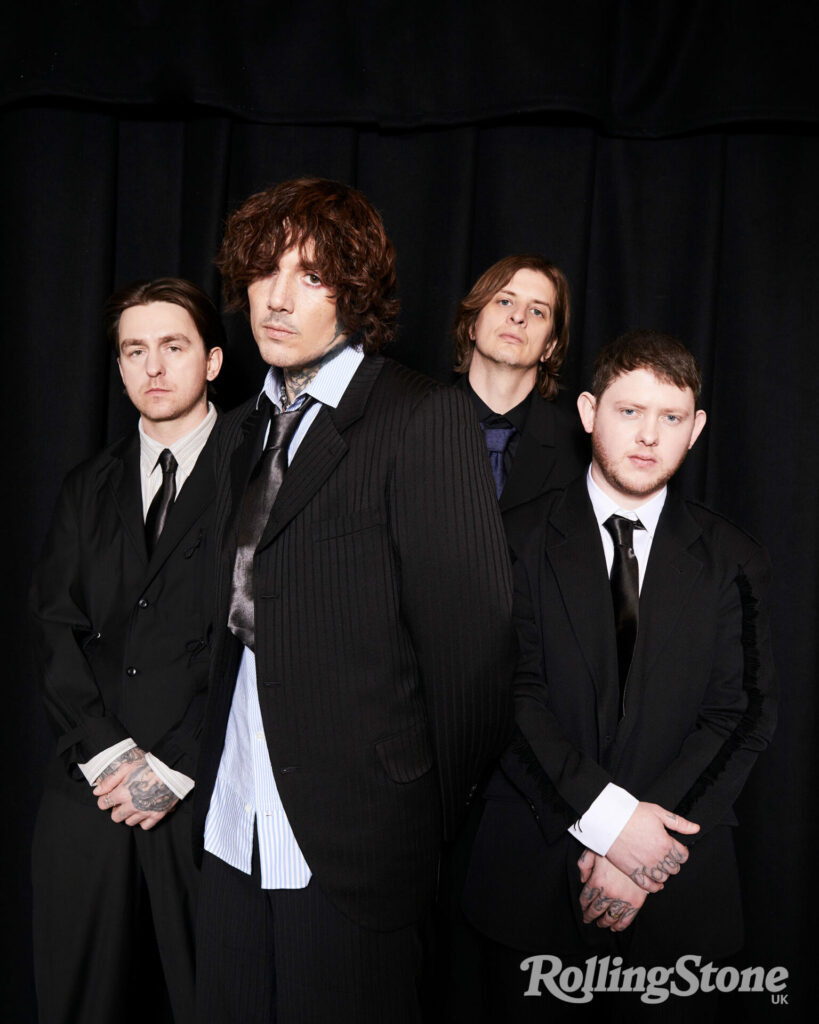
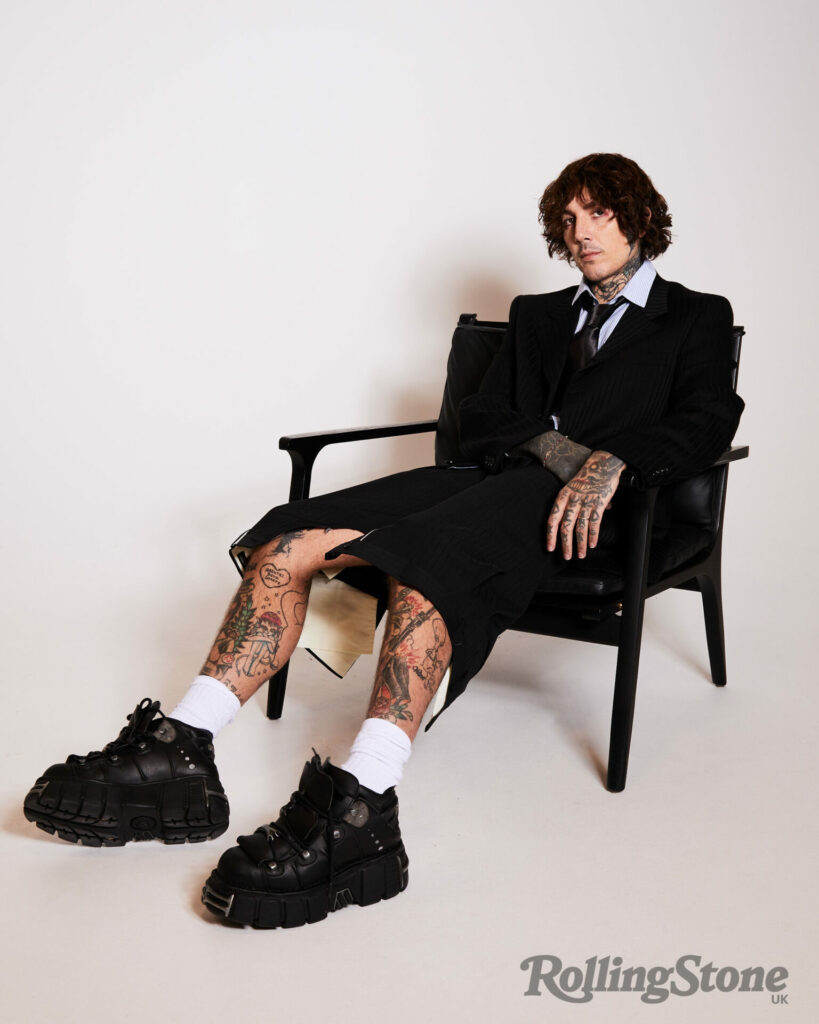
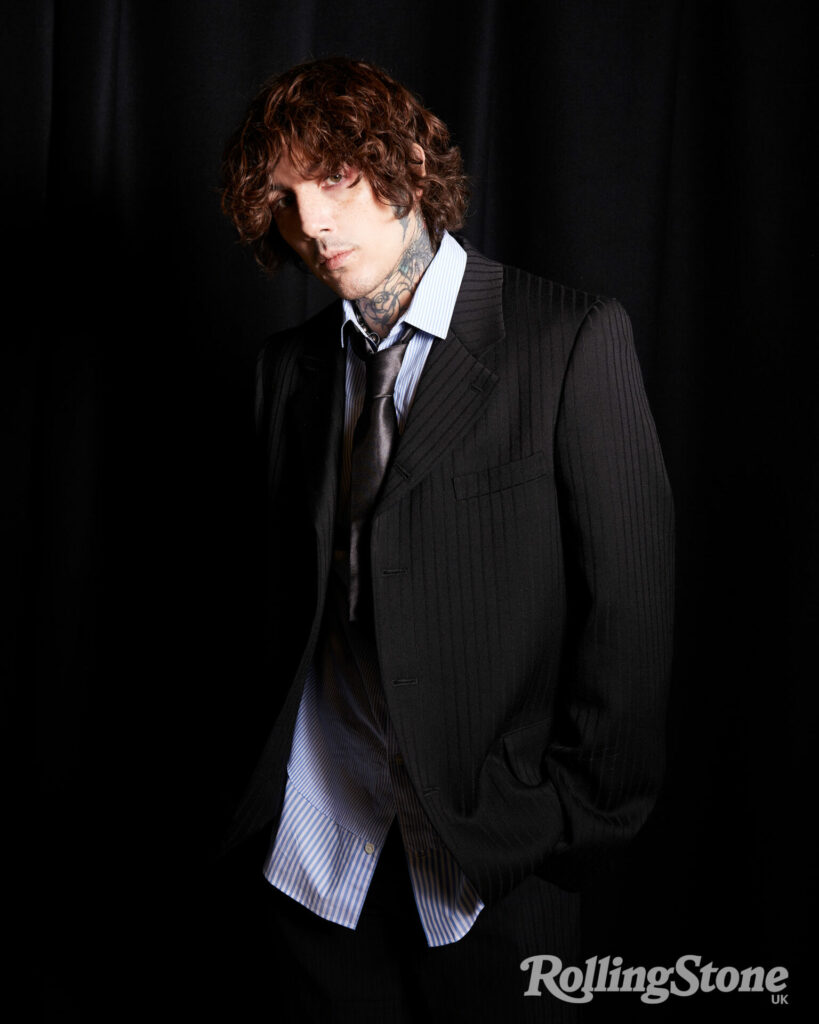
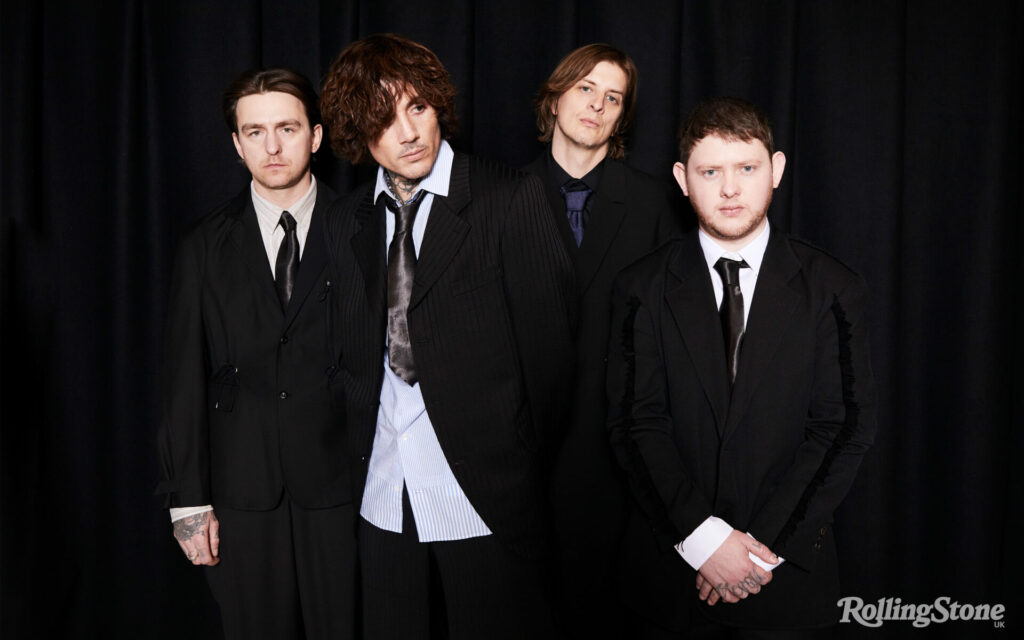
It’s three and a half years later when I meet with Sykes at the Sheffield headquarters for Drop Dead, the alternative clothing company he founded while he was a teenager and still runs today. It’s probably best described as Willy Wonka’s chocolate factory for goths. There’s an art therapy room Sykes designed himself, a photography studio and glam room. Elsewhere, you’ll find a pop-up tattoo studio. Up in the roof there are various dormant sets from different videos and creative projects, where he has completed them and moved onto the next.
The elite spoils of success are found in one portion of the building: a gym that would satisfy even Patrick Bateman, a huge storage space for all the band’s tech (pieces of touring gear are being tended to by employees like they’re tender budding plants) and a plush heavy metal recording studio disguised as a heavenly meditation suite with white fluffy furnishings. Here, in the Drop Dead kitchen, it’s a peaceful beige space of natural textures, presumably inspired by South America, where Sykes and his wife Alissa Salls predominantly live.
On the shelves I spot a menagerie of books that somehow make sense when you’ve spent time with Sykes’ creations: Anne Rice’s Interview with the Vampire, Deb Shapiro’s Your Body Speaks Your Mind, inexplicably Brooklyn Beckham’s What I See and various titles on witchcraft and gardening.
It’s deja vu, I tell Sykes, didn’t we already speak to launch the campaign around what became their latest album, the one that has just dropped years later? “We didn’t get much done on that LA trip,” he laughs, stating the obvious.
At the breakfast bar, he describes the qualities of his creative partnership with Fish: it was one of creation at speed, advancement at any cost. Sykes had to abandon that mindset for his own mental health and wellbeing, but Fish remained tied to deadlines and the need for a constant flow of material to release. “I would go to him, ‘I don’t care if people get mad, if they’re expecting a record, if I said we’re gonna do four records in a year,’” recounts Sykes. “I always use Kanye as an excuse: Kanye does it, he seems to get by. I was taking away all those imposed deadlines and the idea that you lose if you’re not the first one to do it or the fastest to do it. I went through a lot of rewiring of my brain to be able to think: ‘It’ll just be ready when it’s ready.’”
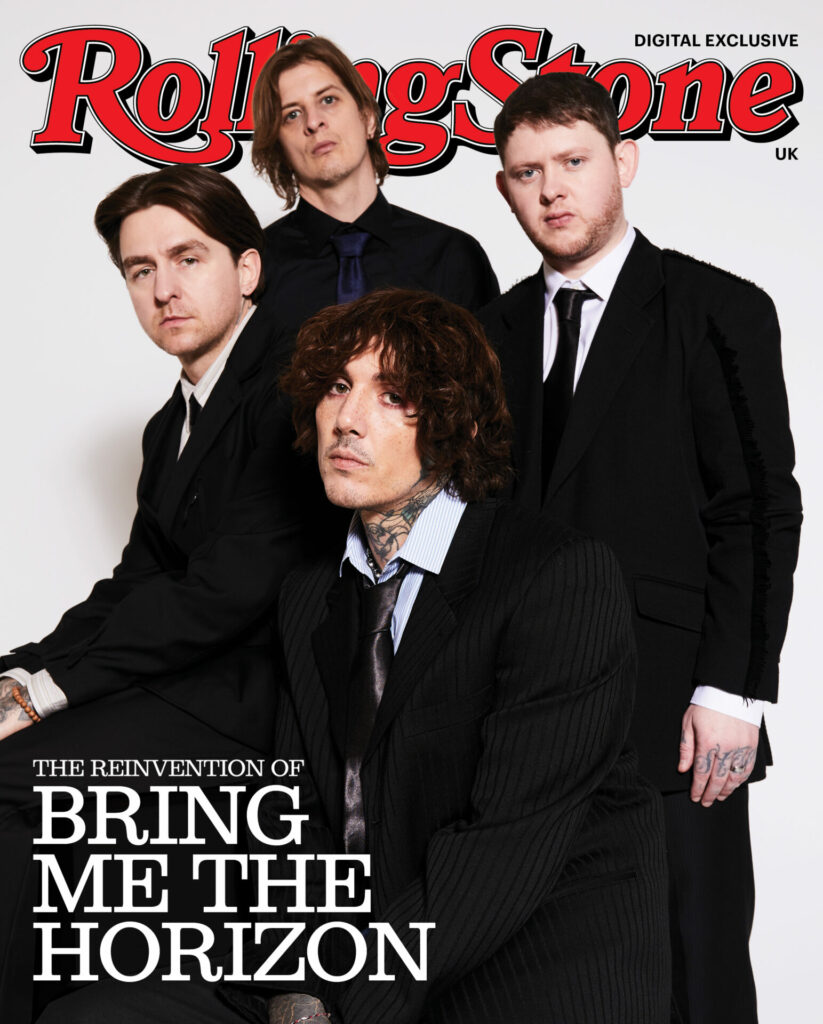
The entirely unpredictable success of Survival Horror supported that stance. The band had to honour their prestigious position: tour the world playing bigger venues than ever, win a BRIT Award, headline festivals like Reading and Leeds and mostly ignore the album. An announcement eventually tied NeX GEn’s release to September 2023, but the plan was abandoned. Shortly after the date came and went, Fish left the band. Two terse routine statements were posted in December — one from the official Bring Me The Horizon channels and one from Fish — about them parting ways. The only parsable implication from the wording was that the decision was predominantly, if not wholly, made on the band’s side.
Fans have speculated over possible reasons for Fish’s departure, from arguments over royalties to Fish wanting to spend more time with his children and, of course, the classic “creative differences” around the creation of NeX GEn. Was it instead a mismatch between Sykes’ desire to be slow and considered and Fish’s drive to progress that pulled them apart?
“Not really, to be honest — it was less about creative things,” says Sykes reluctantly. “We just found ourselves as a band not in a good place. I don’t want to say too much. There’s not really any exciting story there. I’m not going to sit and go, ‘Oh, creative differences and we all left on good terms, and we wish him the best’ and all that bollocks because at the end of the day, any break-up is never as simple as ‘amicable terms’. There was nothing particularly juicy. It just got to a point where it weren’t working anymore for us. His time in the band had to be done. It just had to happen.”
This realisation had been slowly growing in Sykes for a long time — he is clear that this wasn’t a rash decision. “I don’t wanna bad-mouth him or be negative towards him because he’s a good person and he’s a great artist. Nothing happened between us that we’ll never talk again, or we couldn’t collaborate in the future. Nobody died, nothing really bad happened,” he says. “It’s been a fucking journey, there have been ups and downs. I’ve been sat there, head in hands, going, ‘What have I done? What am I gonna do?’ But ultimately it was the best decision for everyone, Jordan included. He’s gonna go on to do fucking amazing things and make a lot of bands a lot sicker.” Fish has already proceeded to work with metalcore band Architects, pop-rockers Busted and alternative artist Poppy. The sentiment repeated online by Bring Me The Horizon fans is that where the rock genre is stagnant, Fish’s ingenuity and technical skill will elevate it.
Did it feel empowering for Sykes to prove himself outside of the “Oli and Jordan” duo? “I always knew I could do it. Out of the two of us, I’m the only one who has been underestimated,” he says plainly. The biographical narrative is that Fish entered the band for the creation of Sempiternal and therefore is largely to credit for elevating them from a niche genre band to a critically acclaimed one. They also signed with Sony at that time, who said in their official announcement that getting Bring Me The Horizon on the label was as important as discovering Metallica or when Sony signed AC/DC.

Certainly, when Sykes came out of rehab and wanted to make that album about his struggle with addiction, he and Fish joined forces and began an obsessive, intense creative process that established the way in which they would work together. It was comparable to a new healthier addiction for Sykes. “Sempiternal was our record that really took us there, but since our first record, we’ve been getting better and better,” he continues. “I put our success down to a lot of things, but definitely down to my dedication to just fucking improving myself. I couldn’t sing and Jordan helped me learn, but at the end of the day I could have turned around and gone, ‘I fucking can’t do this.’
“I never really worried about not being able to do it without him,” concludes Sykes. “I worried how much harder it was gonna be without him — and I said that to him. But I know what I want, and I have a clear vision every time. We’ll get it one way or another and I’ll do whatever it takes. I don’t care about who we have to ask, who we need help from. If we’re not capable as a band to do it, we’ll always get there. I’m not worried about, ‘Can we do it?’ It’s more, ‘How are we going to do it?’”
There has been some positive disclosure between members as a result of Fish’s exit: Sykes admits that the rest of the band did get “shoved out” of the writing process. “I initially assumed they were happy with that, and they were like, ‘OK, we’re chilling.’ Whereas really when Jordan did leave and we were all discussing as a band, there was a lot of resentment. A lot of ‘I feel like I’ve been pushed out of this band.’ And I think I’m to blame for some of that as well. Me and Jordan moved so fast that we sometimes didn’t stop to ask for anyone else’s opinion, or we did everything on a computer.” That meant no drums or guitars were being played while writing — every instrument was being programmed. Released in 2019, Grammy-nominated UK number one album Amo was the apex of using this method. “I do sense a disconnection between those guys and that album because of that,” says Sykes.
He uses Matt Nicholls, the band’s drummer, as an example. “I never stopped to think: ‘Imagine the disconnection you’d have being a musician in a band if you didn’t have any involvement in that song, even if you could have taken the drums and changed the fills and just lived in them,” he shares. “Jordan and me were getting to the point where we were going: ‘This is the album. This is the song. It’s all done. You don’t need to go to the studio to record drums. We’ve done it.’ I didn’t even think: ‘But he wants to be on the record.’ I’m guilty of not even stopping to think about those things because I was on a path of, ‘We’ve got to go, we’ve got to do it! It’s got to be done.’”
According to Sykes, when I was with the band in Los Angeles, Nicholls was in a miserable mood the entire time. “He was like, ‘I’m so fucking bored, I’m losing my mind, I’ve got nothing to do.’ At the time, I was like, ‘I don’t know how to help you.’ Now I look back and go, ‘Yeah, of course, because we weren’t involving him.’”

Near the end of Fish’s time in the band, Sykes says he didn’t even want to go into the studio room to write with him. “I’d completely lost my passion to do it and that’s why the album hadn’t come out, because I did not want to go in the room. I just wanted to get this fucking record done; I just wanted it to be over. I was just so miserable.” After Fish left and Sykes, Nicholls, guitarist Lee Malia and bassist Matt Kean started writing the outstanding 50 per cent of NeX GEn, Sykes felt elated. He looked around and saw the rest of his band happy and having fun.
In this new era, the whole band is involved. That means Nicholls is back to writing the drum parts for songs. “Even just for him to be involved on that level, he was beaming ear to ear,” says Sykes, and edits his sentiment. “I’m not trying to make the band sound like a charity, but there was a sense that some DNA that Bring Me The Horizon might have been missing for a while had come back. I think we’ve gained a lot more than we’ve lost.”
NeX GEn is Oli Sykes’ recovery bible disguised as a kaleidoscopic journey through post-hardcore, hyper-pop and any other sounds he felt inspired to use. The album is about self-discovery and the attempt to find an ideal state of being while plagued with addiction issues. Throughout the record, Sykes has hidden small realisations he had that helped him get better.
Sonically, NeX GEn is heavily referential; it takes all your favourite bands and feeds their music through a modernising machine. We hear mostly from 2000s rock, by way of Deftones, Smashing Pumpkins, Underoath (whose members Spencer Chamberlain and Aaron Gillespie feature on a ‘bulleT w/ my namE On’) and some curveballs with Bullet for My Valentine and Weezer. There is a strange rawness with the record glitching between being melodic and discordant. As Sykes tells me, “Nearly every song on the record is a homage to either a band or a genre or a cliché.” By the time you’ve got the king of post-hardcore Glassjaw’s Daryl Palumbo and rapper Lil Uzi Vert hopping on a track about exorcisms and the end of the world two-thirds in, anything would make sense.
“The whole record’s an experiment that kept getting stronger and better as we continued with it,” says Sykes. He describes some of these songs as “fully piss-taking” lyrically, where lines are “like bumper stickers off eBay — and I think that’s funny and cool, I don’t give a shit.”
In the narrative arc of recovery, there’s no better place to start than at the bottom. The opening lyrics to NeX GEn are: “There’s a place I wanna take you / But I’m not quite there myself”. On ‘YOUtopia’, Sykes sets up the goal for his personal version of healing: to be truly accepting of yourself. While he might be sober now, he has some way to go yet. “I want to be something or someone else,” he tells me. “I’m still not fully comfortable with who I am. I know that is the ultimate reason that I’m not fully happy.”

Whirring metal track ‘Kool-Aid’ — the first song the band created without any input from Fish — is about the hyper-capitalist version of individualism, the corrupted ‘YOUtopia’ pushed by society, while ‘Top 10 staTues tHat CriEd bloOd’ tells us that we’ve got to take responsibility for our own healing. Next comes the sadistic nausea of ‘liMOusIne’: “It’s about the synthetic highs. When you get to step into a limo, it’s a complete detachment from reality. It represents a hedonistic lifestyle, all the empty highs and quick fixes,” says Sykes. By ‘DArkSide’, both he and the character of the record have relapsed and, for now at least, lost the battle. “Everyone who decides to go on a path of self-improvement, or is on the path of being an addict, they’re going to relapse, they’re going to fall. Without a doubt, everyone does it. No one goes, ‘I’m going to fix myself,’ and they fix themselves first time.”
And so begins what Sykes calls the rehab portion of the album. At the start of ‘n/A’ obviously the acronym for Narcotics Anonymous — he introduces himself to the room. A monstrous Greek chorus of fellow addicts (a live recording of fans at one of BMTH’s recent gigs) reply, “Hello, Oli, you fucking knobhead / Did you think you had us fooled?” Of this relapse song, Sykes says, “You’d imagine that the hardest thing is getting back on that horse, but the hardest thing is staying on the horse once you’re on, because when you get back on there, it’s such a rough ride.
“You fucking hate yourself after you’ve relapsed again, when you’ve made a mistake. That feeling of, ‘Fucking hell, I’ve just let everyone down, I’m so embarrassed, everyone hates me.’ You just want to go back to whatever it was that you were doing that takes all those feelings away temporarily.”
He recalls his 12 step meetings in rehab ahead of writing Sempiternal. What helped him was realising that he wasn’t crazy — or if he was, so was everyone else. He shared the room with a schizophrenic, a man who’d served in Afghanistan, a person with an eating disorder, someone else who had been raped by their own father. “I saw that we were all so fucked-up, all going through so much,” he remembers. “We all had the same feeling of: ‘I’m never going to be OK; I’m never going to get over this.’ It was so cathartic knowing that I could do it because other people were doing it.” At the time, he rejected the programme for being too God-focused (he was an atheist). He still doesn’t believe in God per se but does now follow a higher power.

His relapse during the pandemic taught him new tools. Now, he knows that as soon as he experiences a craving for an addiction, he should tell another person. “As soon as I tell someone, the craving goes from a big thing in my head to much more manageable —someone can help me squash it. They’re not going to say, ‘You’re a fucking dirty addict,’ they’re going to help me and ask me why I’m feeling like that.” For any fans who might feel the pull of recovery, expect initial chaos and lost friendships. “Everything about taking that path is harder, but that’s why not many people are on it, because it’s hard,” he says.
We close our conversation with talk of how constant change is the band’s modus operandi. “The first thing in our career that paid off was taking a chance to experiment,” Sykes says. It began with the melodic metalcore on 2008’s Suicide Season that differentiated them from all the other deathcore bands; the devastating Sempiternal ambitiously blended electronic music and metal with a vision that few bands would dare to possess; they’ve been a sugary EDM pop band and a stadium rock band; now they’ve found a middle ground with a range they’ve learned along the way. In an age where the aggressive consistency you find in legacy acts like Metallica or AC/DC would be a turn-off to many rock fans, change has kept Bring Me The Horizon at the forefront of the genre.
This latest evolution of the band’s previously exalted line-up, however surprising and unexpected from the outside, is another part of that cycle. “It’s almost like a trauma, this way of experimenting,” explains Sykes. “We have to. It worked for us, and so we don’t dare not do it. We don’t dare stay the same. It’s always going to be the way forward for us.”
Taken from the next issue of Rolling Stone UK. You can buy it here.
Stylist: Zahra
MUA: Mari Kuno
